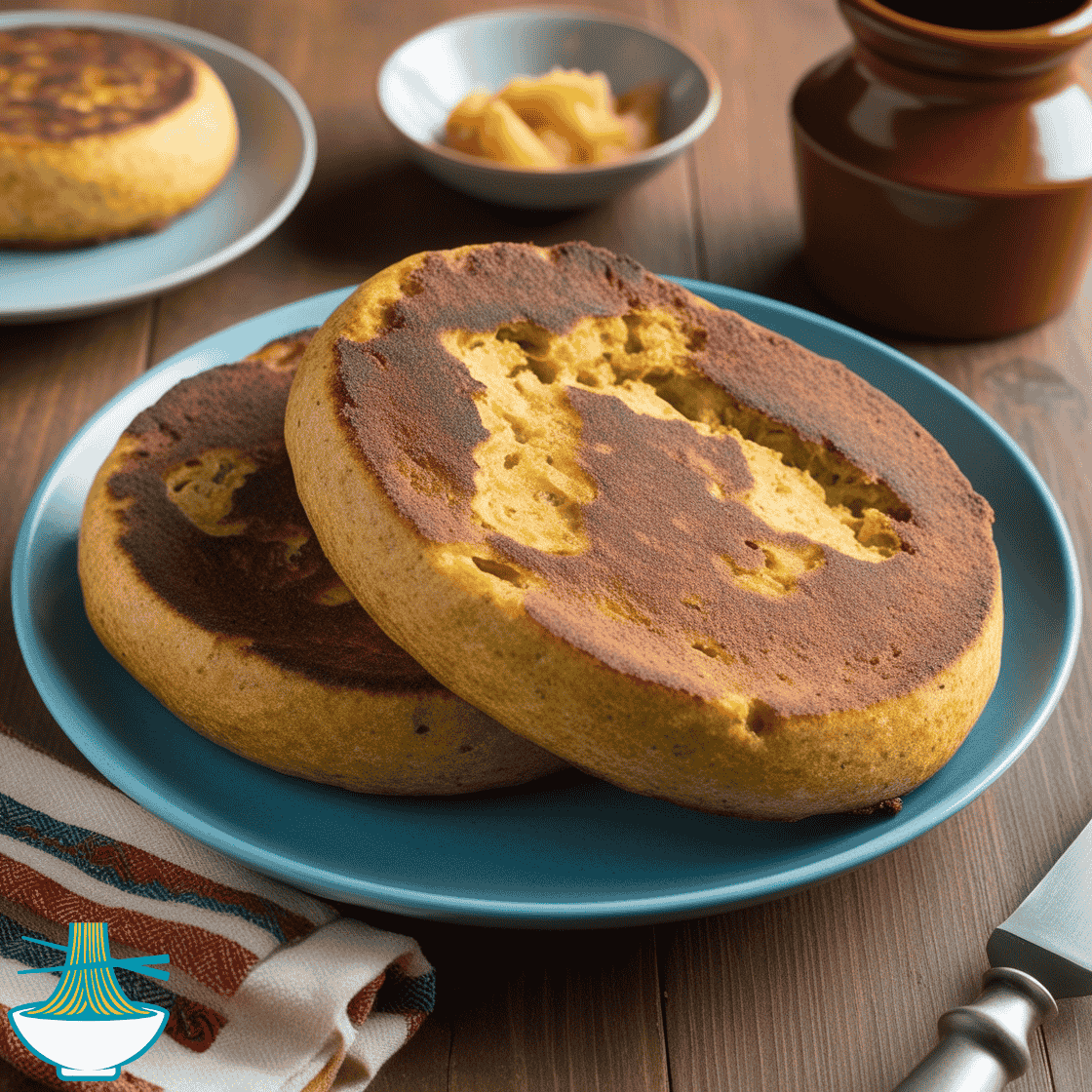Bannock is a versatile bread deeply rooted in the culinary traditions of Indigenous peoples in Canada. This simple yet flavorful bread can be prepared using various methods, including frying, baking, or cooking over an open fire. Its adaptability has made it a staple food across many Indigenous communities, often enjoyed with a variety of sweet or savory toppings.

Bannock's origins can be traced back to Indigenous cultures, where it was traditionally made with locally available ingredients. The introduction of European settlers brought new flours and baking techniques, which influenced the evolution of this beloved bread. Bannock has served not only as a daily sustenance but also as a cultural symbol, often shared during gatherings and ceremonies. Its preparation allows communities to connect with their heritage and pass down traditions through generations.
Ingredients:
1. 2 cups all-purpose flour
2. 2 teaspoons baking powder
3. 1 teaspoon salt
4. 1/4 cup vegetable oil
5. 3/4 cup water
Instructions:
1. In a large mixing bowl, whisk together the flour, baking powder, and salt.
2. Add the vegetable oil and mix until the mixture resembles coarse crumbs.
3. Gradually add water, stirring until a soft dough forms.
4. Knead the dough lightly until smooth and pliable.
5. Divide the dough into equal pieces and shape each into a round flatbread.
6. Heat a heavy skillet or griddle over medium-high heat.
7. Place the Bannock on the skillet and cook until golden brown on both sides (about 2-3 minutes per side).
8. Serve hot with butter, jam, or your choice of toppings.

Nutrition Value:
1. 2 cups all-purpose flour
- Calories: Approximately 910
- Carbohydrates: 192g
- Protein: 24g
- Fat: 2g
- Sodium: 0mg
- Cholesterol: 0mg
- Vitamins: Contains small amounts of B vitamins
- Minerals: Provides iron and calcium
- Nutritional benefit: Primary source of carbohydrates, providing energy; contributes protein and some essential vitamins and minerals.
2. 2 teaspoons baking powder
- Calories: Approximately 6
- Carbohydrates: 1g
- Protein: 0g
- Fat: 0g
- Sodium: 500mg
- Cholesterol: 0mg
- Vitamins: Minimal vitamin content
- Minerals: Contains small amounts of calcium and phosphorus
- Nutritional benefit: Acts as a leavening agent for a light texture in baked goods.
3. 1 teaspoon salt
- Calories: 0
- Carbohydrates: 0g
- Protein: 0g
- Fat: 0g
- Sodium: 2,300mg
- Cholesterol: 0mg
- Vitamins: No significant vitamin content
- Minerals: Primarily sodium
- Nutritional benefit: Enhances flavor; high sodium intake should be monitored.
4. 1/4 cup vegetable oil
- Calories: Approximately 480
- Carbohydrates: 0g
- Protein: 0g
- Fat: 56g
- Sodium: 0mg
- Cholesterol: 0mg
- Vitamins: Contains vitamin E
- Minerals: Minimal mineral content
- Nutritional benefit: Provides healthy fats essential for energy and absorption of fat-soluble vitamins.
5. 3/4 cup water
- Calories: 0
- Carbohydrates: 0g
- Protein: 0g
- Fat: 0g
- Sodium: 0mg
- Cholesterol: 0mg
- Vitamins: No significant vitamin content
- Minerals: Contains trace amounts of minerals
- Nutritional benefit: Crucial for hydration and maintaining bodily functions; essential for dough consistency.


Comments